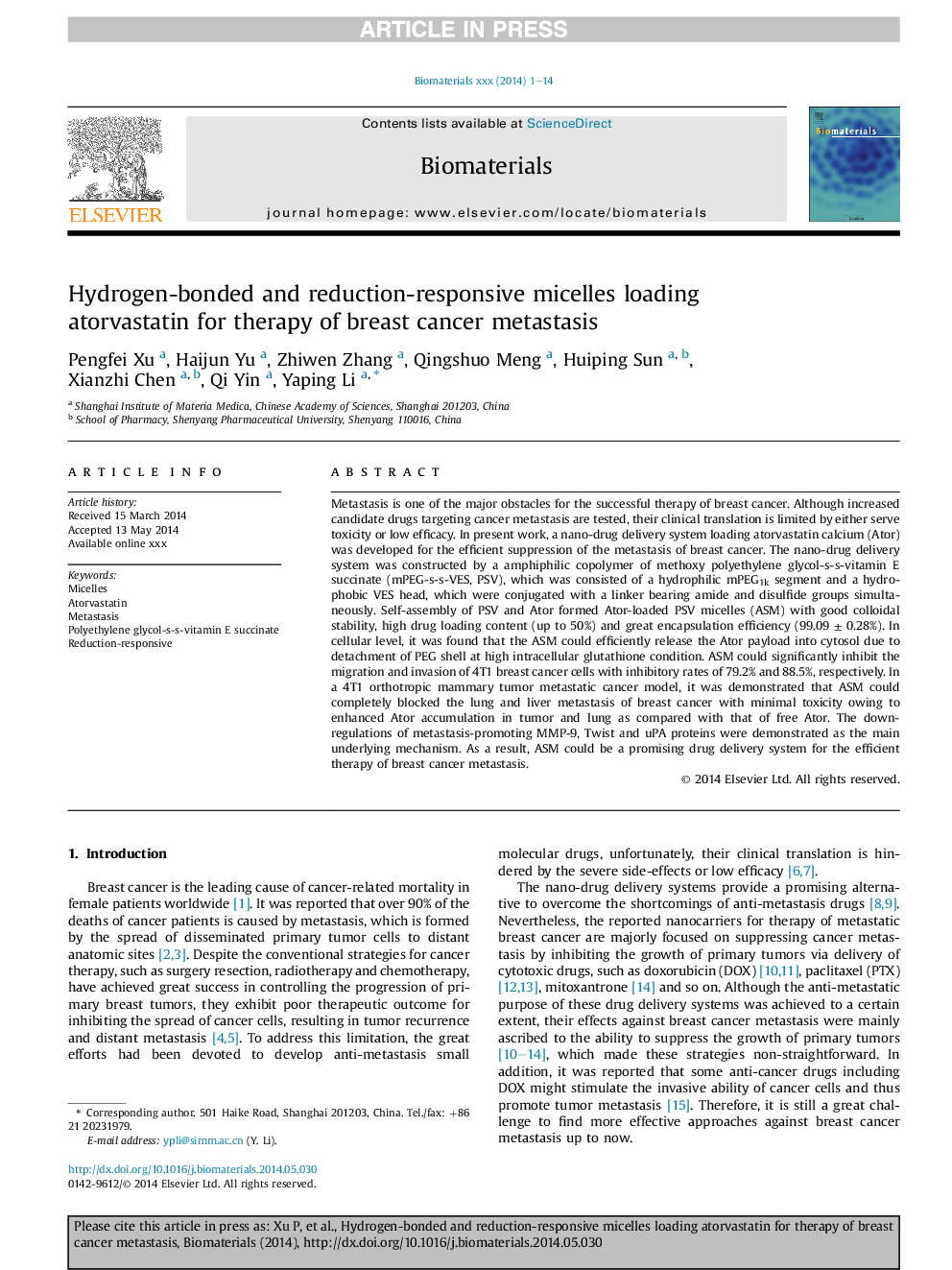| Article ID | Journal | Published Year | Pages | File Type |
|---|---|---|---|---|
| 10227248 | Biomaterials | 2014 | 14 Pages |
Abstract
Metastasis is one of the major obstacles for the successful therapy of breast cancer. Although increased candidate drugs targeting cancer metastasis are tested, their clinical translation is limited by either serve toxicity or low efficacy. In present work, a nano-drug delivery system loading atorvastatin calcium (Ator) was developed for the efficient suppression of the metastasis of breast cancer. The nano-drug delivery system was constructed by a amphiphilic copolymer of methoxy polyethylene glycol-s-s-vitamin E succinate (mPEG-s-s-VES, PSV), which was consisted of a hydrophilic mPEG1k segment and a hydrophobic VES head, which were conjugated with a linker bearing amide and disulfide groups simultaneously. Self-assembly of PSV and Ator formed Ator-loaded PSV micelles (ASM) with good colloidal stability, high drug loading content (up to 50%) and great encapsulation efficiency (99.09 ± 0.28%). In cellular level, it was found that the ASM could efficiently release the Ator payload into cytosol due to detachment of PEG shell at high intracellular glutathione condition. ASM could significantly inhibit the migration and invasion of 4T1 breast cancer cells with inhibitory rates of 79.2% and 88.5%, respectively. In a 4T1 orthotropic mammary tumor metastatic cancer model, it was demonstrated that ASM could completely blocked the lung and liver metastasis of breast cancer with minimal toxicity owing to enhanced Ator accumulation in tumor and lung as compared with that of free Ator. The down-regulations of metastasis-promoting MMP-9, Twist and uPA proteins were demonstrated as the main underlying mechanism. As a result, ASM could be a promising drug delivery system for the efficient therapy of breast cancer metastasis.
Related Topics
Physical Sciences and Engineering
Chemical Engineering
Bioengineering
Authors
Pengfei Xu, Haijun Yu, Zhiwen Zhang, Qingshuo Meng, Huiping Sun, Xianzhi Chen, Qi Yin, Yaping Li,
